- Home
- Madeleine L'engle
A Circle of Quiet Page 2
A Circle of Quiet Read online
Page 2
And yet—I remember these honey-sweet words, and this remembering itself is vain. Ah, surely it is vain to think about words of praise. It is permissible for us to be pleased that a job has been well done, but we can’t take any personal credit for it. We can only be grateful that the work itself knocks self-consciousness out of the way, for it is only thus that the work can be done.
4
The first thing I tried to do was to learn their names. To be known by name is terribly important, though I tend, as usual, to carry my feeling for the name to disproportionate lengths. There is nothing more frightening, for instance, than being a patient in a hospital where you are a number and a case first, and a person second, if at all.
And then there’s Emily Brontë …
One day, a summer ago, I paid our grocery bill for the month. Our new checkbook was with my husband in the city, but I had a rather elderly checkbook which did not have the mandatory cybernetic salad in the bottom left-hand corner. However, I had the money in the bank, and I had my right and proper signature on the check. I was brought up to believe that, if I need to, I can use a piece of birch bark, write in the name of the bank, the person to whom the money is to go, the sum, the signature, and this constitutes a valid check.
But my check bounced. When it was explained to me that this was because it was missing some magnetic gibberish, I was furious. I was furious at the dinner table, furious so loudly that my husband was forced to bang on the table and shout at me to shut up.
I shut up. But I didn’t forget it. Everything I feel about names, about ontology, really, had been violated. Then, at Christmastime, a friend bought something for me, and I reached for a check to repay him the ten dollars and fifty cents. Because I have both French Huguenot and Scots blood I am stubborn and frugal: I saw no reason why my old checks weren’t still valid, and I wasn’t about to waste them.
My friend said, “Oh, come off it, Madeleine, you know that check won’t go through.”
His job is to handle vast sums of money daily; he knows what he’s talking about. I asked, “Do you really and truly mean that my signature, my name, means nothing, absolutely nothing at all?”
“That’s what I mean.”
It was a wet and windy day. I looked at the rain slashing against the windows, pulled out a check with cybernetic salad in the bottom left-hand corner, said, “All right, then, I feel like Emily Brontë today,” and signed it Emily Brontë.
My friend was not amused. “Madeleine, what are you doing?”
“You just told me that my name means nothing, absolutely nothing at all. Okay, so I feel like Emily Brontë and I don’t see why I shouldn’t sign it Emily Brontë. Take it—just for fun—and let’s see what happens.”
“I know perfectly well what’s going to happen. I won’t get my money.”
But after lunch he came in, looking rather sheepish. He had his ten dollars and fifty cents, and no questions asked at the bank about the signature. “But it won’t go through with your monthly statement. It’ll bounce.”
“All right. If it bounces I’ll write you another check.”
It did not bounce. I now have cancelled checks signed Emily Brontë, Jane Austen, and Elizabeth Barrett Browning.
In the battle between Madeleine and the machine, at this point the machine is winning.
5
A signature; a name; the very being of the person you talk to, the child you teach, is at stake.
One day during the morning session at Ohio State, Yetta said, “We have to give the child a self-image.”
Yetta (it means “The given,” and surely Yetta is a gift) is from Alabama. She is black, and gentle, with a core of steel; she has much to be bitter about, and angry; but she also knows how to love. When she said that about the self-image, I stopped her. “Hold everything, Yetta. All my little red warning flags are out. I sniff danger here. Do we want to give the child an image of himself—mirror vision? Or do we want what is real?”
That stopped us all. Nobody had thought very much before about the repercussions in the words: self-image: it’s part of the jargon. But I was concerned that we use such words and phrases carefully, knowing precisely what we meant.
What is a self-image? Who started talking about one? I rather fancy it was Madison Avenue. Picture Satan in a business suit, with well-groomed horns and a superbly switching tail, sitting at his huge executive’s desk, thinking, “Aha! If I can substitute images for reality I can get a lot more people under my domination.”
Do I exaggerate? Possibly. Nevertheless, I am honestly unhappy about Madison Avenue. The advertiser is in business to sell his product to as many people as possible. We forget that most successful high-pressure advertising campaigns deal subtly with our weaknesses, our insecure longing for status (I’ve never quite overcome my yearning to earn a Merit Badge as a housewife), so that we are being manipulated. A pitch to make us buy a new car or a new stove when our old one is perfectly good, so that we’ll have a better “image” of ourselves, doesn’t make sense, but it’s what the advertiser’s in business for. And the powers of darkness know exactly where to infiltrate.
Give the public the “image” of what it thinks it ought to be, or what television commercials or glossy magazine ads have convinced us we ought to be, and we will buy more of the product, become closer to the image, and further from reality.
But what is a true image? Imagination comes from “image.” An image is not in itself intrinsically wrong. What is true real? Can an image be ontological? The medieval mystics say that the true image and the true real met once and for all on the cross: once and for all: and yet they still meet daily.
And what does all this mean in an un-air-conditioned classroom in Columbus, Ohio, on a hot morning in late July?
It’s not a question to be settled either by saints or by Satan. It is something absolutely essential to a writer. Imagery is one of the writer’s chief tools. Where would we be without the images given in metaphor and simile?
Metaphor: She speaks poniards, and every word stabs. Simile: My love is like a red, red rose. “Like” is our simile word. Madison Avenue is by no means the first to misuse “like,” but I was told that the man who wrote the famous “Winston tastes good like a cigarette should” did it with contempt for those at whom the commercial was aimed. Over and over again we hear “like” misused this way: I feel like I’m going to throw up; well, you know, Mother, like I really do need it because …; tell it like it is. Every time “like” is misused, it is weakened as a simile word.
I’m not against changes in the language. I love new words, and not only the ologies. I’ve just discovered “widdershins”: against the direction of the sun. In Crosswicks the bath water runs out clockwise; in Australia, widdershins. I love anything that is going to make language richer and stronger. But when words are used in a way that is going to weaken language, it has nothing to do with the beautiful way that they can wriggle and wiggle and develop and enrich our speech, but instead it is impoverishing, diminishing. If our language is watered down, then mankind becomes less human, and less free—though we may buy more of the product.
So. An image is something that helps us catch a glimpse of reality. A poet, a storyteller, could not work without images. Nevertheless, an image is only an image, a reflection not unlike the reflections of the shadows of reality in Plato’s cave.
If an image is not easy to define, an icon is even more difficult. We usually think of icons as corrupt images which ought to be broken. But it is only the icon misused (like “like” misused) which needs breaking. A true icon is not a reflection; it is like a metaphor, a different, unlike look at something, and carries within it something of that at which it looks. In Russia or Greece, when a painter begins to learn about icons, he is taught that the icon must never look like the person it portrays, it must never be an attempt at a photographic likeness, otherwise it becomes only an image. An icon, if it “works,” is more than itself; it bears a fragment of reality.
&nb
sp; Red flags of danger again: it is precisely because an icon touches on reality that it far too often becomes an idol. All of us who need icons—and I am convinced that all artists do—also need an iconoclast close by. I’m lucky: my husband is an iconoclast par excellence.
The idea that an icon must not look like the person it portrays used to bother me. But my husband is an actor; there are many times when he has to be away, on an out-of-town tryout of a play, for instance. And I have found that the longer we have been married, and the more deeply I love him, the less I “see” him visually. “Close your eyes,” I’m in the habit of telling my students of all ages, “and think about the person you love most in the world. Do you really see him visually? Or don’t you see on a much deeper level? It’s lots easier to visualize people we don’t know very well.”
I’ve noticed in many of my favorite novels that the minor characters are more minutely described, much more physical detail is given about them, than about the hero. A protagonist should be an icon for the reader. A photograph can be a simile, an image; it can seldom be a metaphor, an icon. And though I love snapshots of family and friends, there are times when the camera’s reproduction pushes me further away rather than bringing me closer to the people I love most.
But I do have icons. I think we all do, whether we want to admit it or not. I had a very special one for years without realizing that this is what it was. During the almost-decade that we lived in Crosswicks year round, all kinds of things happened to knock my sense of humor out of joint. There were two years when illness or accident kept someone in the hospital so constantly that it became a joke: “Oh, not you again!” Friends would telephone, laughing, and ask, “What’s happened now?”
Sometime, during those years, I read The Man in the Grey Flannel Suit. What I remember from it is the reference to “the tired thirties.” I was always tired. So was Hugh. During the decade between thirty and forty, most couples are raising small children, and we were no exception. Hugh was struggling to support his growing family in the strange world outside the theatre. And there was I, absolutely stuck in bucology, with the washing machine freezing at least once a week, the kitchen never above 55° when the wind blew from the northwest, not able to write until after my little ones were in bed, by which time I was so tired that I often quite literally fell asleep with my head on the typewriter.
The various pressures of twentieth-century living have made it almost impossible for the young mother with pre-school children to have any solitude. During the long drag of years before our youngest child went to school, my love for my family and my need to write were in acute conflict. The problem was really that I put two things first. My husband and children came first. So did my writing. Bump.
Crosswicks is isolated, which is one of the things we love about it, but it meant that if the children were to have playmates outside their own siblings, I had to drive them somewhere, or pick up some other children and bring them here. The house was usually full of kids, and that’s the way we wanted it, but there were times when for at least a full minute I thought of following Gauguin: I needed a desert island, and time to write.
Well, somehow or other, like a lot of other women who have quite deliberately and happily chosen to be mothers, and work at another vocation as well, I did manage to get a lot of writing done. But during that decade when I was in my thirties, I couldn’t sell anything. If a writer says he doesn’t care whether he is published or not, I don’t believe him. I care. Undoubtedly I care too much. But we do not write for ourselves alone. I write about what concerns me, and I want to share my concerns. I want what I write to be read. Every rejection slip—and you could paper walls with my rejection slips—was like the rejection of me, myself, and certainly of my amour-propre. I learned all kinds of essential lessons during those years of rejection, and I’m glad to have had them, but I wouldn’t want to have to go through them again. (I’m getting to icons: wait.)
I was, perhaps, out of joint with time. Two of my books for children were rejected for reasons which would be considered absurd today. Publisher after publisher turned down Meet the Austins because it begins with a death. Publisher after publisher turned down A Wrinkle in Time because it deals overtly with the problem of evil, and it was too difficult for children, and was it a children’s or an adults’ book, anyhow? My adult novels were rejected, too. A Winter’s Love was too moral: the married protagonist refuses an affair because of the strength of her responsibility towards marriage. Then, shortly before my fortieth birthday, both Meet the Austins and an adult novel, The Lost Innocent, had been in publishing houses long enough to get my hopes up. I knew that The Lost Innocent was being considered very seriously; one editor was strong for it; another was almost equally enthusiastic; a third hated it; and they were waiting for the opinion of a fourth editor who had just come back from Europe. I tried not to think about it, but this was not quite possible. And there was that fortieth birthday coming up. I didn’t dread being forty; I looked forward to it. My thirties had been such a rough decade in so many ways that I was eager for change. Surely, with the new decade, luck would turn.
On my birthday I was, as usual, out in the Tower working on a book. The children were in school. My husband was at work and would be getting the mail. He called, saying, “I’m sorry to have to tell you this on your birthday, but you’d never trust me again if I kept it from you.—has rejected The Lost Innocent.”
This seemed an obvious sign from heaven. I should stop trying to write. All during the decade of my thirties (the world’s fifties) I went through spasms of guilt because I spent so much time writing, because I wasn’t like a good New England housewife and mother. When I scrubbed the kitchen floor, the family cheered. I couldn’t make decent pie crust. I always managed to get something red in with the white laundry in the washing machine, so that everybody wore streaky pink underwear. And with all the hours I spent writing, I was still not pulling my own weight financially.
So the rejection on the fortieth birthday seemed an unmistakable command: Stop this foolishness and learn to make cherry pie.
I covered the typewriter in a great gesture of renunciation. Then I walked around and around the room, bawling my head off. I was totally, unutterably miserable.
Suddenly I stopped, because I realized what my subconscious mind was doing while I was sobbing: my subconscious mind was busy working out a novel about failure.
I uncovered the typewriter. In my journal I recorded this moment of decision, for that’s what it was. I had to write. I had no choice in the matter. It was not up to me to say I would stop, because I could not. It didn’t matter how small or inadequate my talent. If I never had another book published, and it was very clear to me that this was a real possibility, I still had to go on writing.
I’m glad I made this decision in the moment of failure. It’s easy to say you’re a writer when things are going well. When the decision is made in the abyss, then it is quite clear that it is not one’s own decision at all.
In the moment of failure I knew that the idea of Madeleine, who had to write in order to be, was not image.
And what about that icon?
During those difficult years I was very much aware that if I lost my ability to laugh, I wouldn’t be able to write, either. If I started taking myself and my failure too seriously, then the writing would become something that was mine, that I could manipulate, that I could take personal credit—or discredit—for. When a book was rejected, I would allow myself twenty-four hours of private unhappiness. I’m sure I wasn’t as successful in keeping my misery from the family as I tried to be, but I did try. Our house fronts on a dirt road—we didn’t have the land with the brook, then—and I would go down the lane to do my weeping. I found that I could play games with the children during dinner (Buzz and Botticelli were our favorites), but I couldn’t listen to Bach. But perhaps what was most helpful—and still is—is a white china laughing Buddha which sits on my desk in the Tower. He laughs at me, never with ridicule, b
ut lovingly, tolerantly: you are taking yourself seriously, aren’t you, Madeleine? What matters is the book itself. If it is as good a book as you can write at this moment in time, that is what counts. Success is pleasant; of course you want it; but it isn’t what makes you write.
No, it’s not. I found that out on the morning of my fortieth birthday.
My white china Buddha is an icon. He has never become an idol.
6
My fiftieth birthday was quite unlike my fortieth, but equally memorable, and lots funnier. I always remind people about my birthdays; nobody is ever able to say, “But why didn’t you tell me?” I start telling weeks ahead. A birthday, mine, my family’s, my friends’, is an opportunity for a feast day, a party, for getting together. When it came time for my fiftieth birthday I thought to myself: Half a century! This time I don’t need to remind anybody. They’ll surely do something splendid.
So I was silent.
The twenty-ninth of November that year was the day after Thanksgiving. Josephine and Alan had gone to England at the end of the summer. Maria was home, and had brought her current beau. Hugh was in previews for a play which was to open the following week, so he was legitimately preoccupied. Tom Tallis was coming for my birthday dinner, and he had also procured, through an Iranian friend, a real, right, and proper hookah for Bion, who is one of his innumerable godchildren—only he knows how many: I think he said that our granddaughter Charlotte is the twenty-ninth.
On that fiftieth, half-century, birthday, it was obvious that, under all the circumstances, I would have to cook dinner, rather than be taken out. So I cooked it, an excellent dinner, roast beef, red and juicy; broccoli with hollandaise sauce; Yorkshire pudding; all the assorted accompanying goodies. Tallis had brought some splendid champagne. We had barely finished dinner when Hugh had to rush off to the theatre. Maria and her friend had a party to go to; Bion and Tallis played with the hookah and drank up all my champagne; and I did the dishes. While I was getting things organized in the kitchen, the two dogs, Oliver and Tyrrell, stole the rest of the roast beef from the sideboard and ate it.

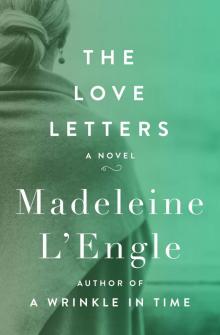 Love Letters
Love Letters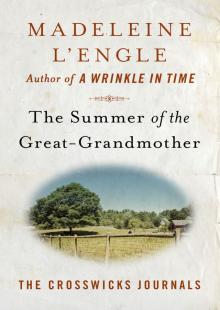 The Summer of the Great-Grandmother
The Summer of the Great-Grandmother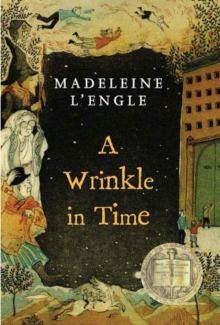 A Wrinkle in Time
A Wrinkle in Time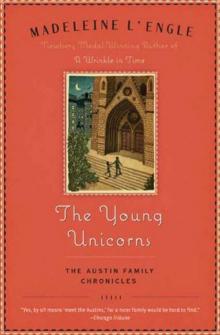 The Young Unicorns
The Young Unicorns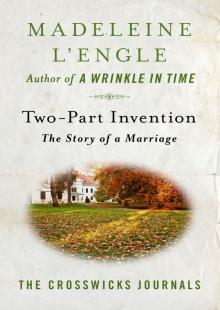 Two-Part Invention: The Story of a Marriage
Two-Part Invention: The Story of a Marriage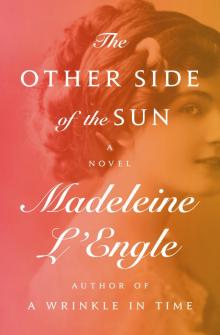 The Other Side of the Sun
The Other Side of the Sun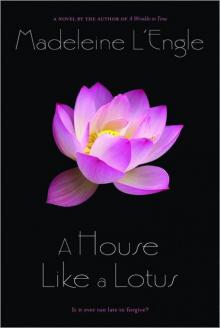 A House Like a Lotus
A House Like a Lotus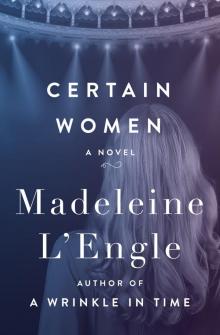 Certain Women
Certain Women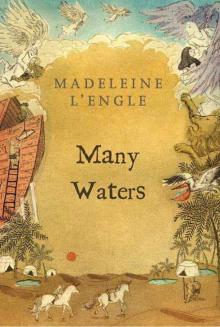 Many Waters
Many Waters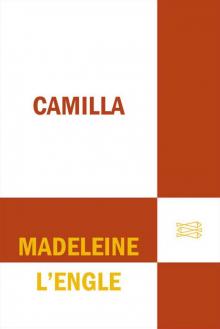 Camilla
Camilla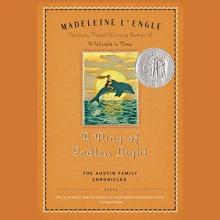 A Ring of Endless Light
A Ring of Endless Light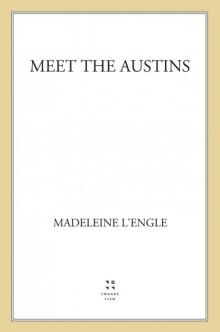 Meet the Austins
Meet the Austins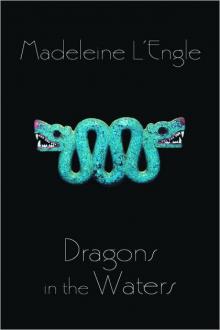 Dragons in the Waters
Dragons in the Waters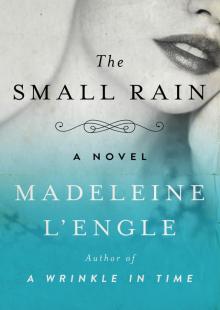 The Small Rain
The Small Rain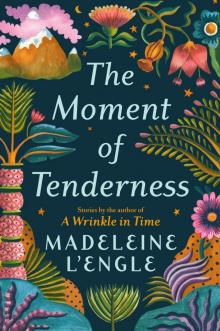 The Moment of Tenderness
The Moment of Tenderness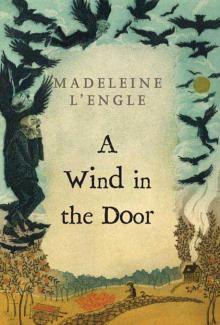 A Wind in the Door
A Wind in the Door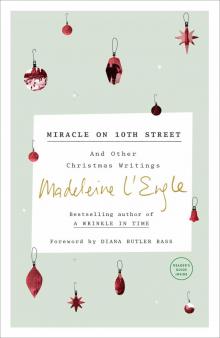 Miracle on 10th Street
Miracle on 10th Street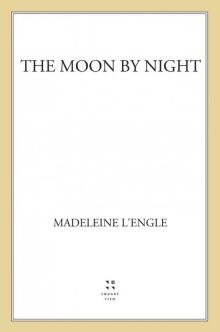 The Moon by Night
The Moon by Night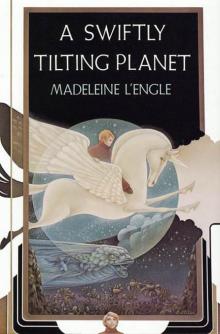 A Swiftly Tilting Planet
A Swiftly Tilting Planet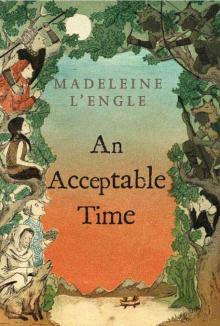 An Acceptable Time
An Acceptable Time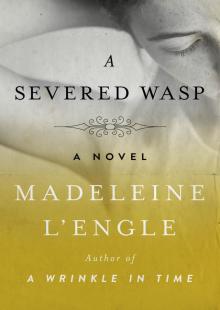 A Severed Wasp
A Severed Wasp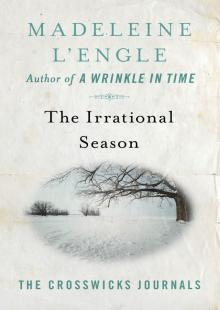 The Irrational Season
The Irrational Season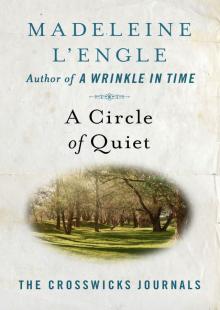 A Circle of Quiet
A Circle of Quiet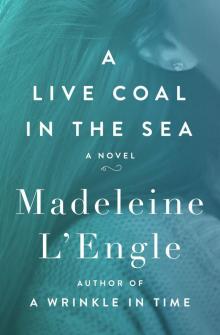 A Live Coal in the Sea
A Live Coal in the Sea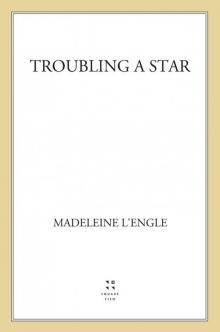 Troubling a Star
Troubling a Star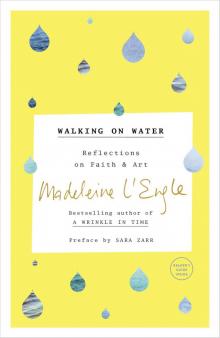 Walking on Water: Reflections on Faith and Art
Walking on Water: Reflections on Faith and Art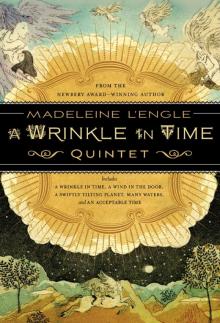 A Wrinkle in Time Quintet
A Wrinkle in Time Quintet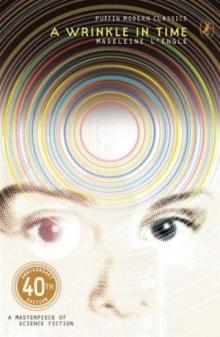 Wrinkle in Time
Wrinkle in Time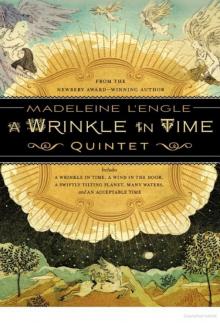 The Wrinkle in Time Quintet
The Wrinkle in Time Quintet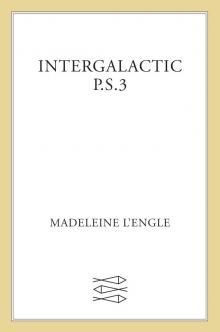 Intergalactic P.S. 3
Intergalactic P.S. 3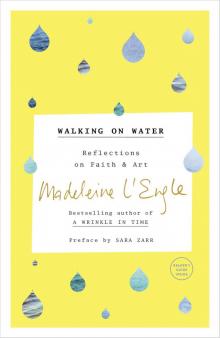 Walking on Water
Walking on Water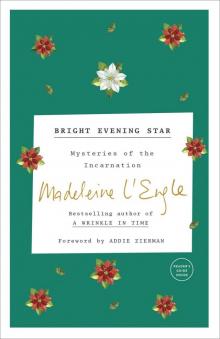 Bright Evening Star
Bright Evening Star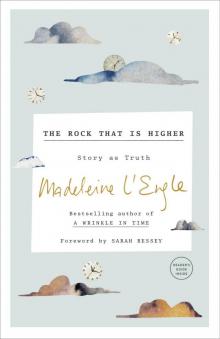 The Rock That Is Higher
The Rock That Is Higher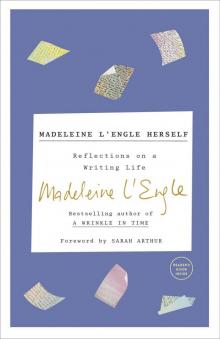 Madeleine L'Engle Herself
Madeleine L'Engle Herself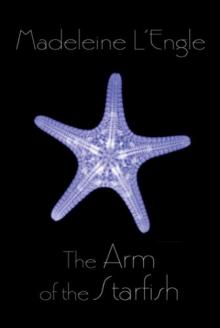 The Arm of the Starfish
The Arm of the Starfish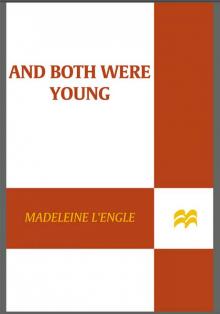 And Both Were Young
And Both Were Young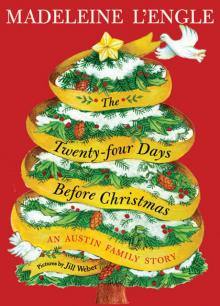 The Twenty-four Days Before Christmas
The Twenty-four Days Before Christmas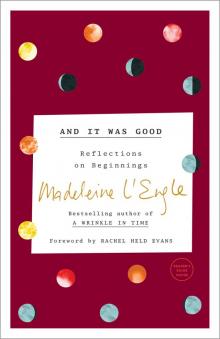 And It Was Good
And It Was Good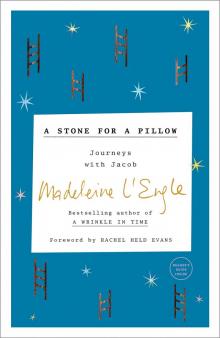 A Stone for a Pillow
A Stone for a Pillow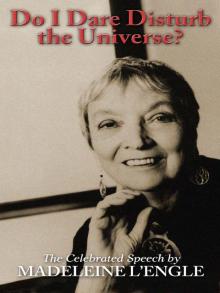 Do I Dare Disturb the Universe?
Do I Dare Disturb the Universe?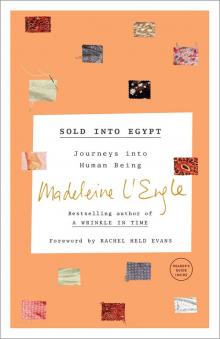 Sold into Egypt
Sold into Egypt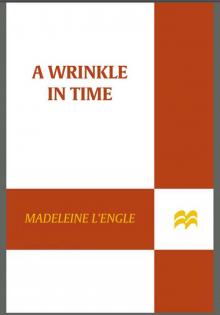 A Wrinkle in Time (Madeleine L'Engle's Time Quintet)
A Wrinkle in Time (Madeleine L'Engle's Time Quintet)